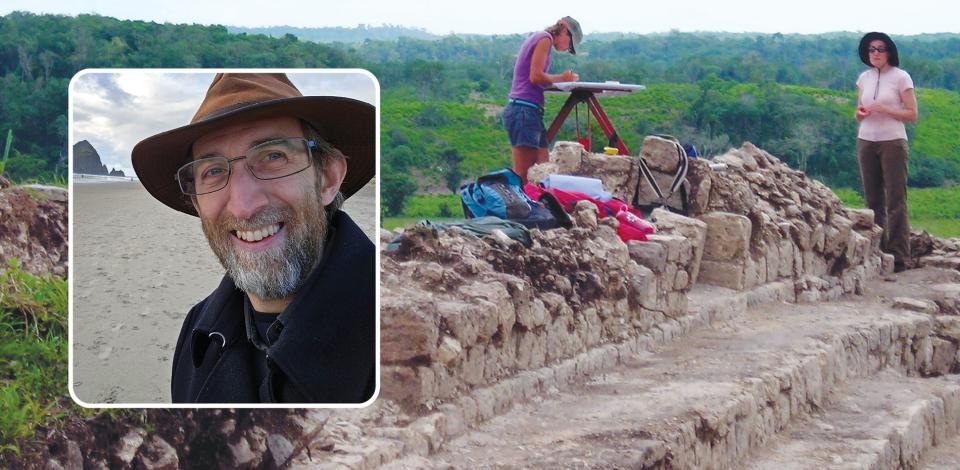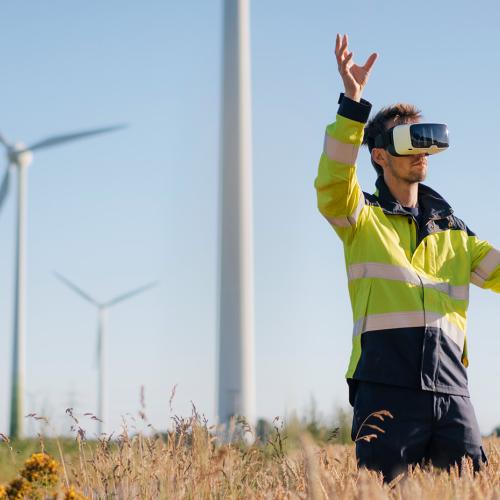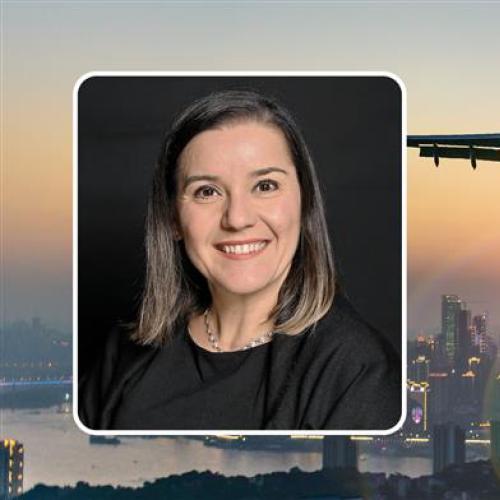Scott Cardinal - Digging Data Analytics
OMS Analytics student uses newly gained skills to transform his approach to research problems.

Scott Cardinal is a seasoned archaeologist who has successfully bridged the gap between ancient artifacts and modern data science. As a senior project manager and museum scientist at the New York State Museum, Cardinal brings nearly three decades of experience in cultural resource management to his work. His expertise lies in conducting archaeological assessments for federal and state construction projects, ensuring that sites of cultural and historical significance are properly evaluated and preserved.
Concurrent with his successful archaeological career has been Cardinal's passion for data science and analytics. His search for innovative tools that could enhance his analysis of archaeological data led him to independently explore various data science techniques through the years, including spatial data mining, correlation and clustering methods, and unsupervised machine learning.
Acknowledging the limitations of self-study, Cardinal decided to formally pursue data science and analytics studies. With his work and family based in upstate New York, he first tested his return to academia with Georgia Tech’s online MicroMasters program, which offers learners an introduction to the essential fundamentals of analytics.
From his MicroMasters experience, Cardinal realized Georgia Tech’s Online Master of Science in Analytics (OMS Analytics) was the ideal opportunity for him to delve even deeper into the world of data science. Concerned that the light mathematical experience from his undergraduate studies might hinder his success in the nationally-ranked OMS Analytics program, Cardinal found support from Program Director Joel Sokol. Sokol reassured him that his unique background in anthropology and social theory could help him thrive in the data science realm.
Entering the program, Cardinal persevered and worked through the anticipated challenges. “The biggest hurdle in the program was my limited background in advanced mathematics," he said. "It took some extra work to get up to speed in calculus and linear algebra, but I did it!”
After successfully mastering calculus and linear algebra, Cardinal focused his new skills on data analysis. “The more I got into the program, the more I knew I had made the right choice. Classes in simulation, deterministic optimization, Bayesian statistics, and computational data analysis dramatically changed my research methodology and provided powerful new tools and perspectives to allow me to analyze archaeological data with greater depth and precision. They enabled me to approach my archaeological research from a variety of new analytical angles," he reflected.
The OMS Analytics program not only honed Cardinal’s technical skills but also connected him with a diverse and supportive community of fellow students, faculty, and alumni. He especially valued the diversity of the student body and appreciated the sense of community fostered within the program. “My biggest surprise was the very active OMS Analytics community of students, faculty, and alumni," he said. "I felt part of a true community and had more interactions with my online OMS Analytics peers than I had in my previous in-person graduate experience at another institution. I made great friends who I’m still in touch with.”
The skills he gained during the OMS Analytics program ultimately transformed his approach to research problems. "Several classes really tested my limits and fundamentally changed how I approach research problems," he noted. Utilizing his practicum project as a springboard for further in-depth study, he explored the societal impacts of machine learning and AI, blending his expertise in social sciences with cutting-edge data science techniques.
"Perhaps the biggest gain has been the ability to digest the wealth of literature on computational approaches to social science and artificial intelligence," Cardinal stated. Armed with his OMS Analytics knowledge, Cardinal has revolutionized his work at the New York State Museum, where he now employs advanced analytical tools such as simulations, optimization techniques, and Bayesian networks to extract deeper insights from archaeological data. His enhanced coding skills and mathematical understanding have opened up new avenues for research and writing, particularly in the intersection of computational approaches and social sciences.
In addition to applying his advanced skills to his work at the museum, Cardinal also co-founded Rubicon Insight Social Consulting, which offers a unique blend of anthropological expertise, data science, and analytical methods to a broader range of clients, showcasing the versatility and real-world applicability of his skill set.
Cardinal's journey from a traditional archaeologist to a data-savvy museum scientist and consultant exemplifies the power of OMS Analytics’ interdisciplinary learning and the endless possibilities that emerge when ancient history meets modern technology. He continues to explore the intersection of data science, social theory, and archaeology and is committed to advancing both his field and the broader understanding of how computational tools can be applied to cultural and historical research.
“The OMS Analytics program significantly transformed my professional work. The curriculum equipped me with advanced problem-solving skills that I now apply in my research, allowing me to extract more information from archaeological data than ever before," Cardinal shared. "Its strong mathematical and algorithmic foundation has expanded my ability to employ computational approaches in the social sciences. The OMS Analytics degree broadened my professional horizons and allowed me to bridge traditional archaeology approaches with modern data analytics. That in itself has propelled my academic research and career in exciting new directions.”
Credits
Author: Laurel-Ann Dooley
Editor: Teresa Daniel

